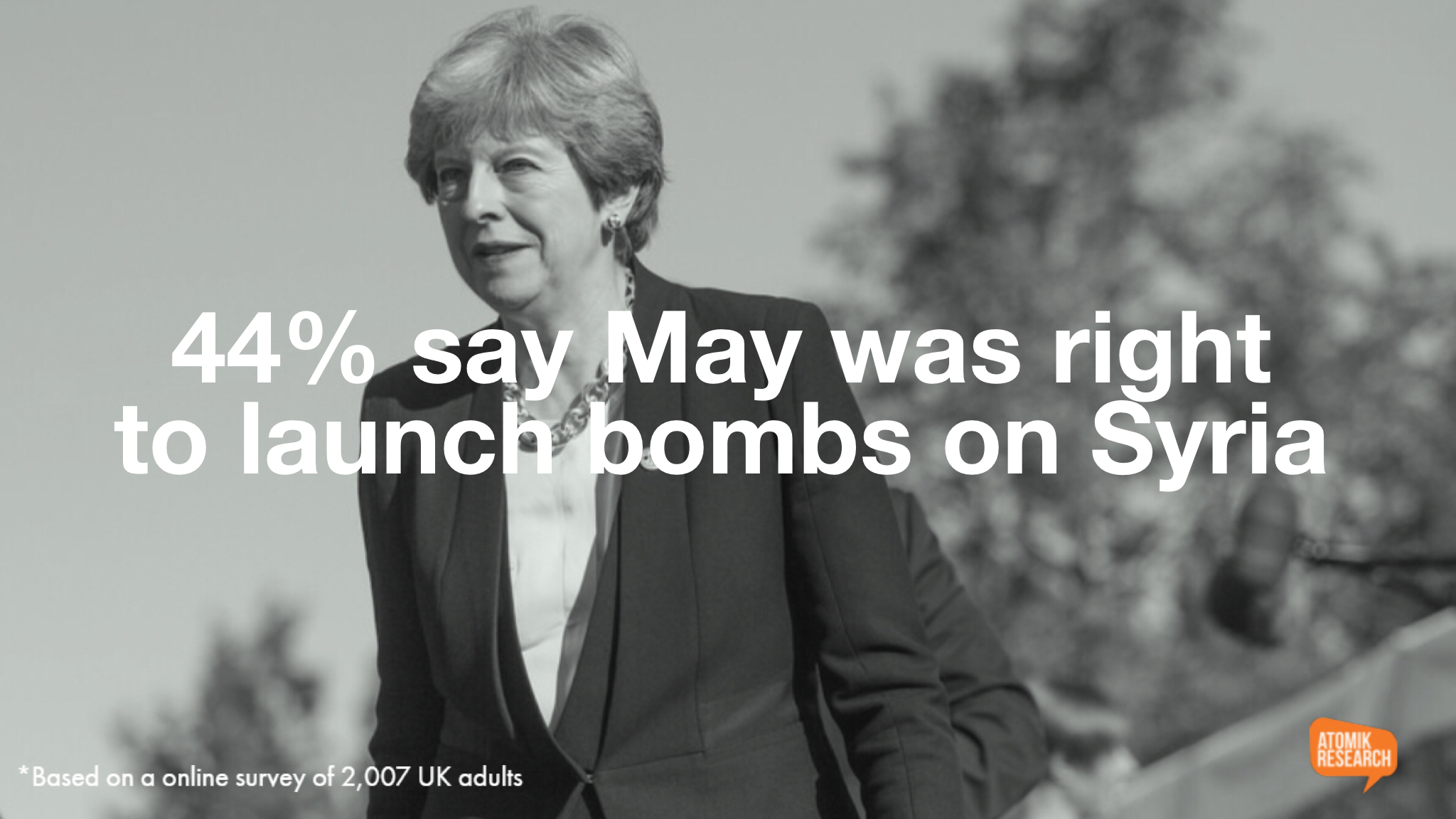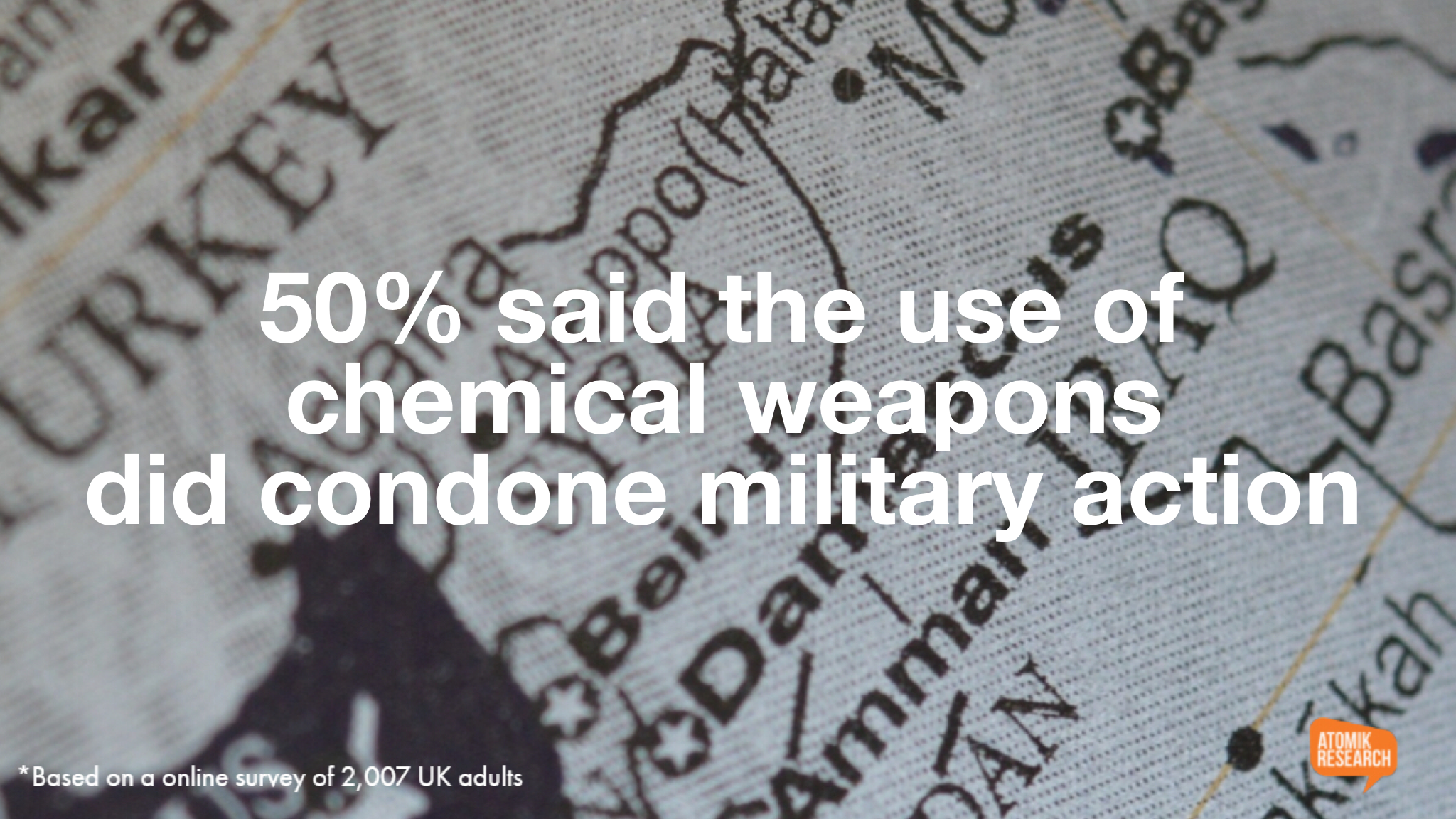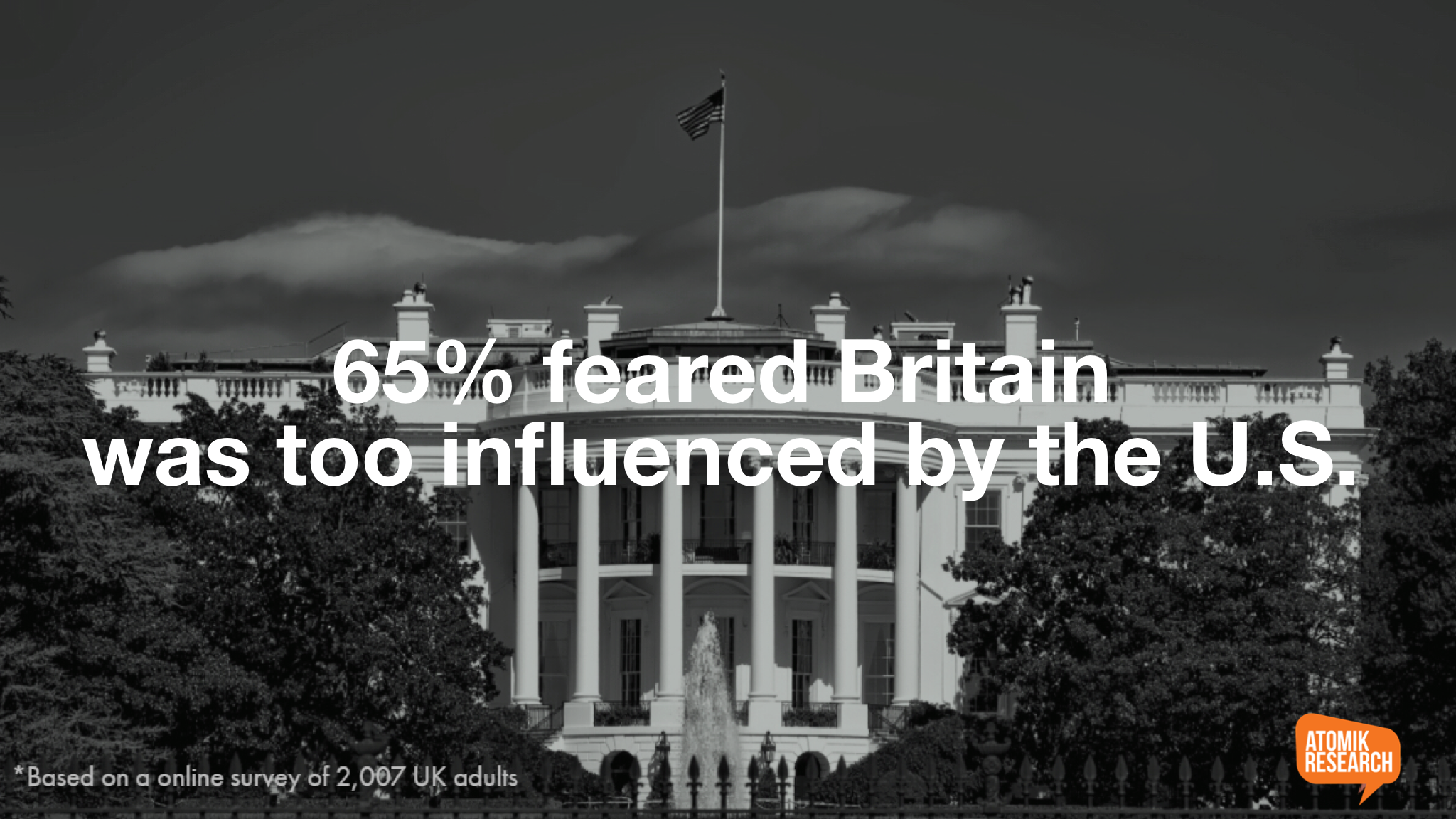Prime Minister Theresa May’s decision to join US and French forces in bombing weapons facilities in Syria provoked stormy debate in the House of Commons. The strikes were carried out after Syrian and Russian forces were accused of using chlorine gas in an offensive on the rebel-held city of Douma on April 7. Both countries deny the accusation.
Mrs May spent three hours before MPs defending her decision to join air strikes before Parliament could vote on taking action. Labour leader Jeremy Corbyn branded the bombings ‘legally questionable’, while Mrs May said it was ‘legally and morally right’ to join the air strikes to prevent ‘future human suffering’.
But what does the nation think? Atomik Research questioned 2,000 adults across the UK to find out.
 The survey showed the country is fairly split, with 44% of people saying the PM was right to launch the bombing raids and 37% saying she was wrong. The research also revealed that more men than women thought Mrs May was right, with 56% backing the PM. Forty-two per cent of women thought she was wrong.
The survey showed the country is fairly split, with 44% of people saying the PM was right to launch the bombing raids and 37% saying she was wrong. The research also revealed that more men than women thought Mrs May was right, with 56% backing the PM. Forty-two per cent of women thought she was wrong.
Debate among MPs raged around whether or not Mrs May should have sought a vote from Parliament backing the bombing before taking action. So much so that Mr Corbyn pushed for a new war powers act that would stop Prime Ministers from launching attacks without first seeking approval from MPs. Nearly half (46%) of people surveyed agreed, saying the strikes should only have been launched after a vote, with 37% disagreeing. Older adults aged over 55 were the most in favour of the action, with 49% saying Parliament did not need to vote on military action.
The strikes targeted three sites connected with Syria’s weapons programme but a US assessment of the bombings released on Thursday claimed the bombings had a limited impact. Only 26% of people surveyed thought the strikes would be effective, with nearly half (49%) thinking they would have no effect.
The majority of people (65%) feared Britain was too influenced by the US according to the research. But half (50%) said the use of chemical weapons did condone military action.
People aged under 35 were most in favour of using political discussion to defuse the situation rather than a bombing campaign with 55% of those questioned backing diplomacy over bombs.
 Cyber security experts have warned that Russian President Vladimir Putin could order cyber attacks on Britain’s infrastructure in revenge for our membership of the joint strike force.
Cyber security experts have warned that Russian President Vladimir Putin could order cyber attacks on Britain’s infrastructure in revenge for our membership of the joint strike force.
The research revealed over half (54%) of those surveyed said they feared such an attack, with only 25% saying they were unconcerned about the warning. Those aged under 35 were most fearful of cyber warfare.
Reports earlier this week said British holidaymakers were cancelling trips abroad as a result of the strikes – especially in Cyprus, which is just 75 miles from Syria. Nearly three in ten (28%) under-35s said they have changed their holiday plans in the wake of the bombings with 24% now avoiding areas they would previously have considered.






